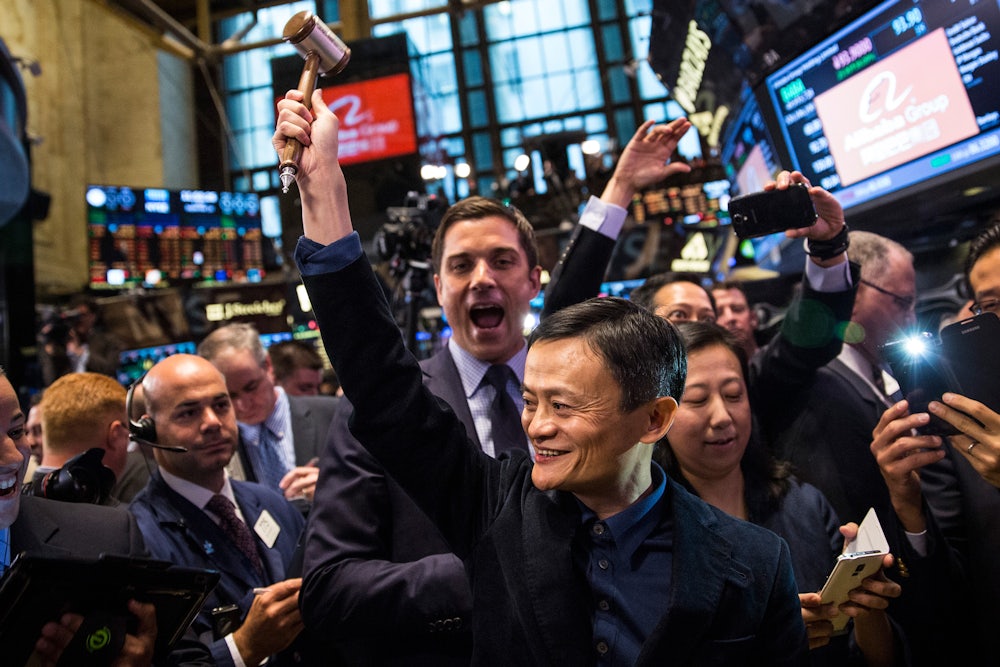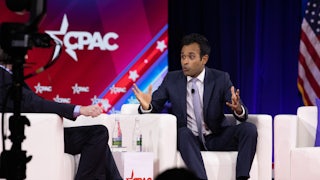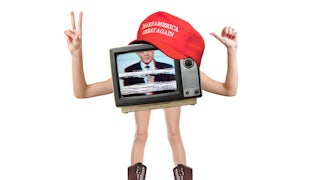At the beginning of Mao Zedong’s reign, China was a poor, underdeveloped country with a shallow industrial base. Mao’s Great Leap Forward Campaign of 1958–1961 was intended to increase food production dramatically while creating a credible industrial base for the country. It turned out to be a horrifying fiasco, resulting in the deaths from hunger of millions of Chinese peasants. Five years later, Mao instigated what came to be called the Cultural Revolution, whose avowed purpose was to purge the nation of all remaining elements of feudalism and capitalism. The Cultural Revolution, though not quite as horrific as the Great Leap Forward, resulted in the deaths of as many as 1.5 million Chinese people during its 10-year span of 1966–1976.
Mao feared that the group he called the “Capitalist Roaders” would come to the fore after he died, and that is what happened. The new leaders of the Chinese Communist Party made a conscious decision to go down that road, partway at least, after Mao’s passing, in order to begin modernizing the country’s economy in a serious, systematic way. Poised between socialism and capitalism, Deng Xiaoping, who was installed in 1978 as the first leader under the new system of limited 10-year terms, is famous for his quip on this subject: “Black cat or white cat, as long as it catches mice, it is a good cat.” Propelled by Deng’s reforms, the Chinese economy by 2010 had displaced Japan’s as the world’s second largest.
Deng largely dismantled the system of centralized planning China had adopted from the Soviet Union in favor of relying on market forces for economic development, and he opened China to investment from the outside world. These changes were bound to produce a cadre of extravagantly wealthy entrepreneurs, and so they did. China, a purportedly Communist country, was suddenly known for housing more billionaires within its borders than any other nation on the planet except the United States. The most well-known of this cadre, inside and outside China, was (and almost certainly still is) Jack Ma. Ma was a former English teacher who in 1999 created an e-commerce site in his apartment in Hangzhou that he named Alibaba, meant to serve as a global digital marketplace. In 2004, Ma created Alipay, a third-party mobile-phone and online payment system, said to be used by roughly 70 percent of China’s population. It has been accused of disrupting China’s financial system.
By 2014, Ma was able to list Alibaba on the New York Stock Exchange. The listing held the record for the world’s largest initial public offering, or IPO, from then until 2019. Ma’s even bigger enterprise, Ant Group, was originally launched as an escrow service to facilitate the payment transactions of Alibaba’s online marketplace. Ma had split Alipay off from Alibaba and incorporated it into the more commanding entity of Ant. He raised three rounds of private capital for the venture, and by mid-2018 the company was seen as the world’s most valuable startup.
With a view to placing Ma’s IPO for Ant in Shanghai and Hong Kong (and not New York), the company made its finances public for the first time. The same details that excited would-be investors—the consumer loan portfolio that surpassed that of every state-owned bank in the country, an annual payments total exceeding China’s GDP—worried the bank regulators in Beijing, who had been yearning to regulate privately owned companies more carefully. In advance of Ant’s IPO, Ma addressed a business conference in Shanghai in October 2020, attended by highly placed bank regulators and other government officials, including China’s vice president, a central bank governor, and several other senior state-bank officials. In his speech, Ma criticized Beijing’s efforts to minimize financial risks. “There is no systemic risk in China’s financial system,” he asserted. “Chinese finance has no system.” He attacked the bank regulators, saying that they had “only focused on risks and overlooked development.” He critiqued Chinese bank regulators for having a “pawnshop mentality.” Officials in Beijing were outraged.
When President Xi Jinping got wind of what Ma had said, he ordered the immediate halt of Ant’s IPO. At a meeting of the Financial Stability and Development Committee, headed by Xi’s top economic czar, Liu He, the group decided to “put all kinds of financial activities under regulation and [treat] the same business in the same way.” Subsequently, the government made the rule even tougher, requiring firms such as Ant to fund at least 30 percent of each loan in conjunction with a regular bank. But the whole point of Ma’s critique of the prevailing Chinese banking system was that its structure was antiquated and unable to provide the liquidity needed by both individual Chinese consumers and innovative companies such as Alibaba and Ant.
Some observers, however, did not believe Xi’s feelings in this matter were limited to the attitude and behavior of a single egomaniacal entrepreneur. A September 20, 2021, Wall Street Journal article carried the headline “XI JINPING AIMS TO REIN IN CHINESE CAPITALISM, HEW TO MAO’S SOCIALIST VISION.” In it, reporter Lingling Wei suggested that Xi was bent on curtailing or even reversing the capitalist reforms that had made China the second-largest economy in the world by GDP. Wei wrote that, in Xi’s opinion, private capital now had been “allowed to run amok, menacing the party’s legitimacy.” The supremacy of the Chinese Communist Party had been compromised, Xi thought, and needed to be restored. At the same time, a robust capitalist sector was essential to maintain the loyalty of the populace to the regime. Could Xi reconcile these apparently clashing goals? Mao held that there were two kinds of contradictions—“nonantagonistic” ones that could be peacefully resolved, and “antagonistic” ones that could only be resolved through violence. In which kind of contradiction was Xi, and China, becoming enmeshed?






